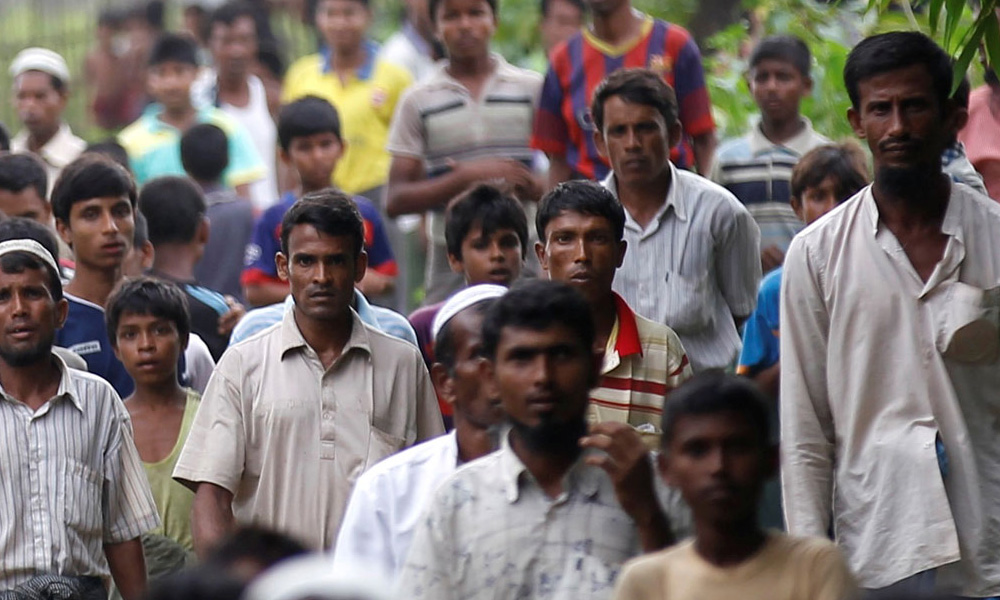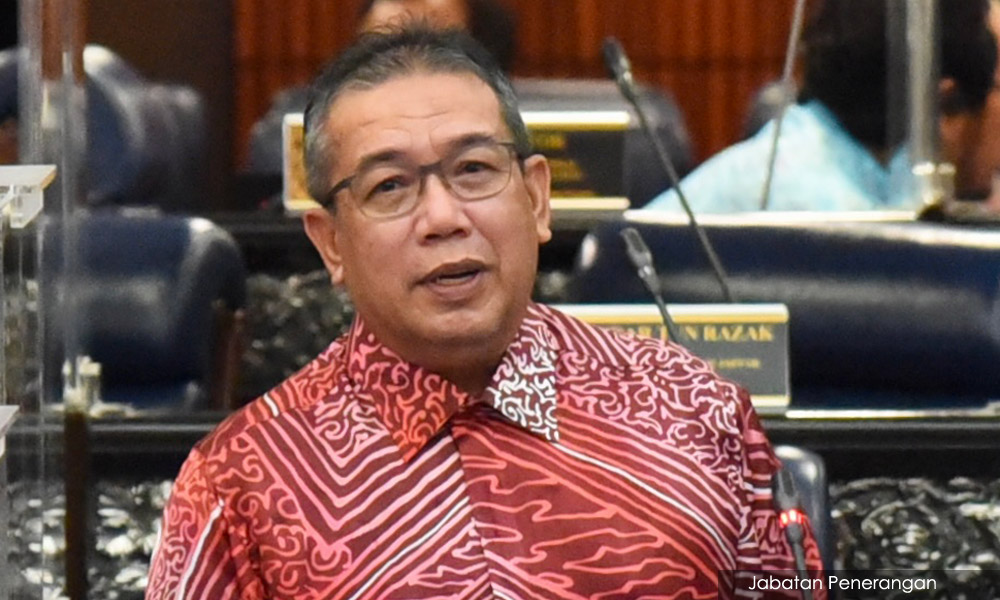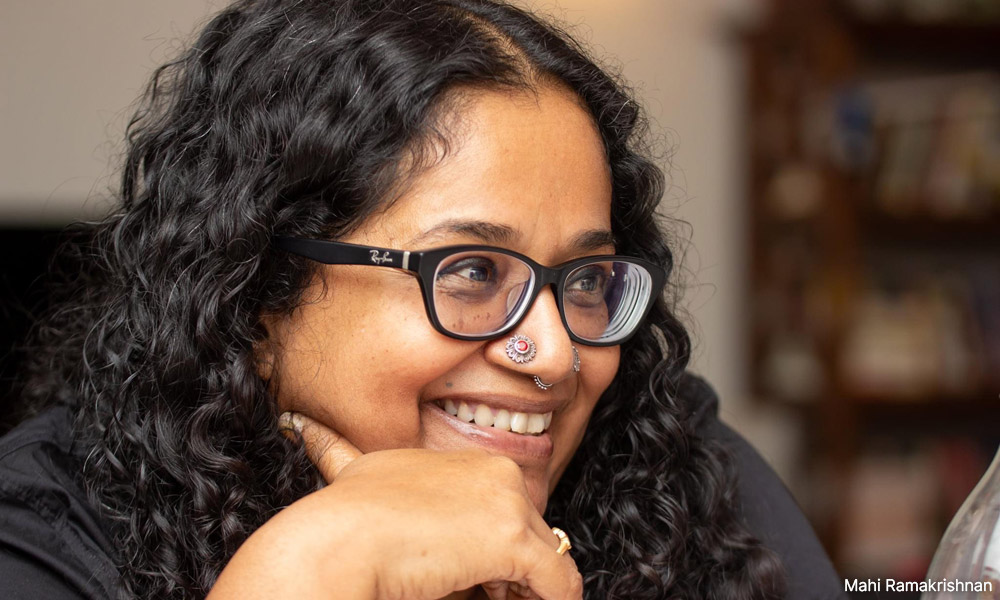Refugees have actually been working without government approval in Malaysia but are typically exploited with low wages, said Sujauddin Karimuddin.
The former refugee turned activist said some who have resettled, however, turned their hardships into good-paying jobs, and their new home countries are reaping the economic dividends.
Originating from the Rakhine state in Myanmar, the 41-year-old who spent five years in Malaysia as a refugee before resettling in Australia in 2005 explained many fellow Rohingyas who resettled there were doing well in the construction industry.
He said most importantly, refugees were contributing economically as Australian taxpayers soon after they gained their refugee recognition.
Some even became taxpayers while their applications were being processed, he added, because they were given the right to work to be able to live dignified lives.
“With the years of experience gained working in the construction sector in Malaysia, they join as skilled labourers (in Australia), having first acing their practical tests, and start earning not less than the estimated minimum wage of AUD7,000 per month (RM21,000).
“But without taking conversion rates into account, it was still considerably higher than what they were waged during the many years they spent in Malaysia.
“They are putting that income back into the local economy of their new home countries while creating job opportunities for locals as well,” he said.
Sujauddin (above) explained that many had become sub-contractors in construction sites whose projects earned them a monthly income between AUD20,000 to AUD40,000 (RM62,000 to RM124,000).
Refugees can boost the economy
Comparing refugees to the Malaysian government’s emphasis on recruiting migrants, Sujauddin said the latter group sent almost all of their earnings back home while refugees lived and spent in Malaysia.
“From house rents, utility bills, and groceries to public transportation, clothing, necessities, and income taxes, refugees can give back more to the Malaysian economy if they are given the right to work.
“Refugees form part of the weave that is the fabric of Malaysian society and all they want is to be able to contribute back to society and live with dignity.
“And this they can do, if you let them,” Sujauddin appealed.

The United Nations High Commissioner for Refugees (UNHCR) has estimated Malaysia to be hosting about 181,000 refugees and asylum seekers, the majority of whom are from Myanmar, including about 103,000 Rohingyas.
Refugees are not officially allowed to work in Malaysia.
Taking a broader perspective, Sujauddin pointed out that legalising refugee participation in Malaysia’s workforce can help stimulate the economy and raise productivity.
That could in turn lift capital returns and stimulate international trade, he said.
He reasoned that on average, refugees stayed in Malaysia between seven to 15 years, some even 20 if they were single before they were resettled and those were years the economy could benefit from refugee employment.
Employability of refugees
Commenting on the government’s recent decision to allow the Construction Labour Exchange Centre Bhd (CLAB) to take charge of migrant labour management in the construction industry, Sujauddin said refugees could be roped in as well.
This meant large numbers of migrants in this sector will come under CLAB, allowing the firm to monitor and distribute labour from worksites where construction was completed but workers still held valid permits, to other worksites that need labour.
Sujauddin said this is one way the government can ensure refugees fill gaps in the labour market rather than affecting the employment opportunities of local workers.
He was responding to a recent written Parliament statement by Minister in the Prime Minister’s Department (Special Functions) Abdul Latiff Ahmad.

Latiff said the government was being cautious to avoid becoming a country that encourages the entry of more undocumented migrants seeking refugee status.
He said a detailed study was being carried out to formulate a policy decision on the matter and was deliberating the issuance of work permits, levy payment by employers, enforcement of employment contracts, approved sectors, and other matters under labour law.
Don’t discriminate between refugees
Last June, the Malaysian Employers Federation expressed its enthusiasm for the idea when its executive director Shamsuddin Bardan pointed out that the many vacancies waiting to be filled in several industries could benefit from employing refugees.
He had reasoned that employers would not have to bear the costs of transportation from foreign countries as well as accommodation, which they would incur when employing migrant workers.
Sujauddin said all refugees should be allowed to work and choosing one group over the other was discrimination in itself.
Agreeing with him, refugee rights activist Mahi Ramakrishnan said there are those with different skills, expertise, and education among refugees who could mitigate the country’s worker shortage.
“It’s a prudent move compared to bringing in workers from Bangladesh, like the ongoing initiative by the Human Resources Ministry that is mired in controversy.
“Instead of dictating where they should go, the government can make a concerted effort to understand what they would like to do, their educational level, their skill sets or expertise,” said the founder of Beyond Borders a group that works to protect refugee rights.
Current procedures already exist
Malaysia is not a party to the 1951 Refugee Convention nor its protocol and therefore does not have an asylum system regulating the status and rights of refugees.
Mahi contends that the government should not use the lack of a legal framework “as a way of denying refugees their rights.”

Citing conventions that Malaysia has ratified like the Convention on the Rights of a Child and the Convention on the Elimination of All Forms of Discrimination Against Women, Mahi said it wasn’t about offering piecemeal solutions but ensuring refugees could live in Malaysia with their livelihood assured and dignity intact.
Indicating a lack of political will to allow legal employment to refugees, Mahi pointed out that the IMM13 pass, under the Immigration Act, currently empowers the home minister with that discretion.
Former PBS supreme council member turned activist on Sabah migrant issues, Dr Chong Eng Leong, described the IMM13 pass as a social visit pass for Philippine refugees who entered Sabah between 1972 and 1984.
In giving a chronological development of the IMM13 pass, Chong said in a June 2020 comment piece in Borneo Today that the pass had a lifespan of one year and must be renewed but allowed its bearer to stay and work in Sabah.
In August 2020, Home Minister Hamzah Zainudin said the IMM13 pass would be the standard document used to regularise as many as 136,000 migrants who hold various documents in Sabah.
“I do not understand what the government wants to study, but if they want to study the feasibility of refugees in employment, Beyond Borders are happy to collaborate,” he said.
Chiming in to offer his expertise to the government, Sujauddin who is also a co-founder and director of the Elom Community Centre in Kuala Lumpur, said he had worked in refugee determination exercises for almost 10 years, with three different organisations, including the Australian Immigration Department as an interpreter. - Mkini




No comments:
Post a Comment
Note: Only a member of this blog may post a comment.